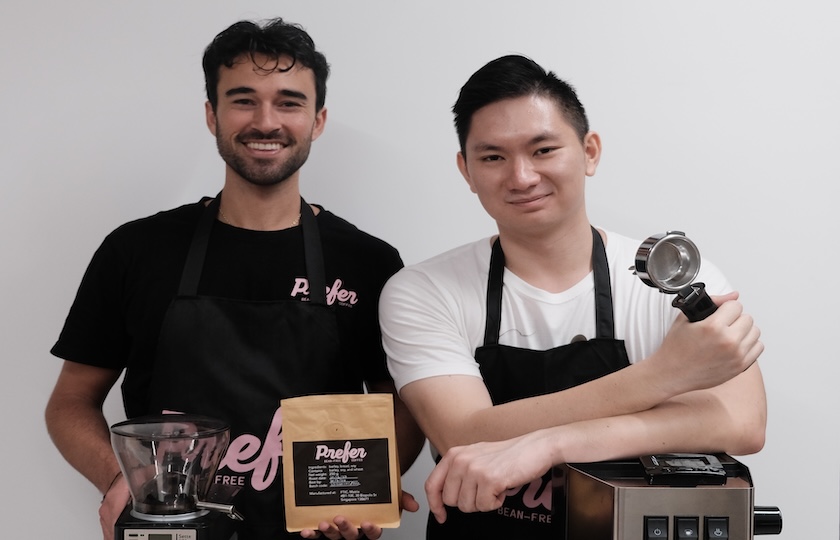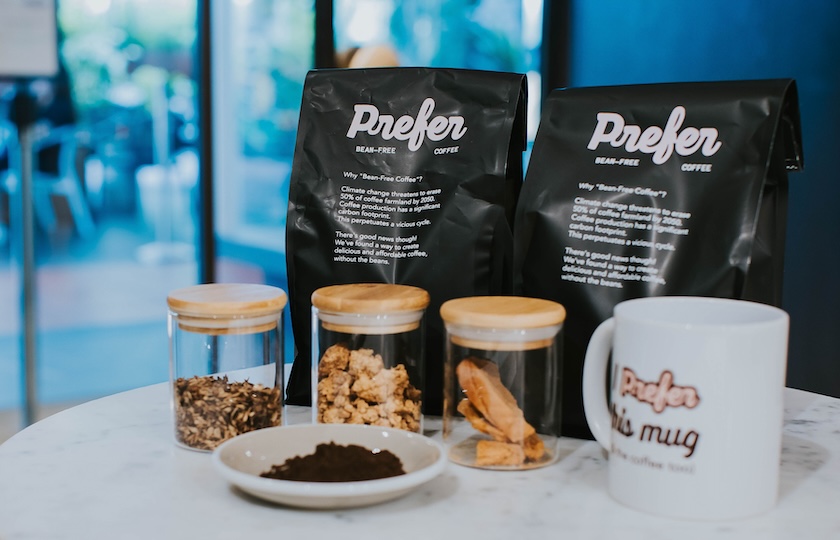Seeing that coffee is in high demand and that rising costs are likely to accompany it, Prefer, a Singaporean bioflavours start-up has launched the world’s first bean-free coffee.
Prefer, founded by two food scientists – Tan Ding Jie and Jake Berber – has raised US$2 million in its first seed funding stage.
Around 50 per cent of farmlands used to produce coffee are predicted to be lost to climate change by 2050, and the carbon footprint of growing coffee is higher than that of producing the same quantity of pig, chicken, fish, or milk.
The pair shared a desire to innovate sustainable products through a biological fermentation process. They then aimed to create a greener coffee form that is “bean-free” and fermented from bread, soy and barley, which have similar taste molecules to coffee.

“Our mission is to create coffee variants that are delicious, affordable, and sustainable in the long run,” says Jake Berber, CEO of Prefer.
“Today, we start as a climate-friendly option on the menu. But as coffee farmlands diminish and prices continue to rise in future, while our production remains scalable to meet demand, we believe Prefer will be the next generation of the commodity we know as coffee.”
Prefer grinds, roasts, and blends fermented leftover barley grains, day-old bread, okara, or soybean pulp from local food production businesses to create its brew.
After 48 hours, the fermentation allows the green grounds to become zero-caffeine and have tea-sourced caffeine contents adjusted to taste. Within the same facility, it also replicates the flavour of beans harvested from distant lands like Ethiopia and Colombia.
Containing a malty and nutty aroma, Prefer’s dark-roasted coffee can be served in the form of ground fine to medium coarse without extra steps or time when brewed using a coffee machine.
Tan Ding Jie, Prefer’s CTO, says fermentation is as old as human civilisation and has been used to craft tastes, preserve ingredients, and boost the nutrition content in food.
“Through Prefer, we want to further its conventional use by leveraging cutting-edge science to create a line of sustainable flavours that’s accessible to everyone while conserving the environment,” he said.
With the intention of promoting an alternate supply of flavours through fermentation technology – without depending on conventional harvesting – the team sees coffee as its first ‘problem’ crop threatened by climate change. Others include chocolate, vanilla, and citrus.



